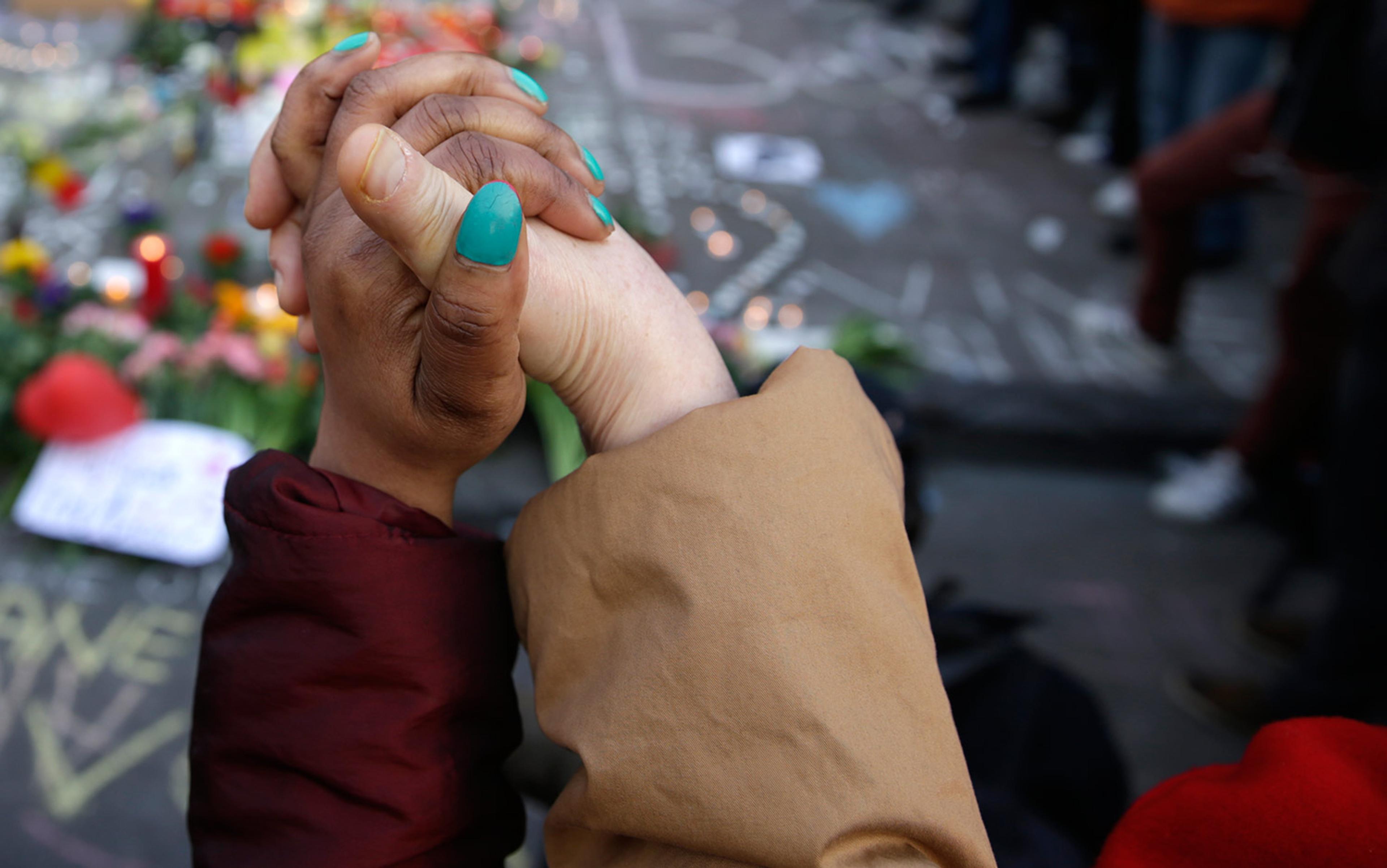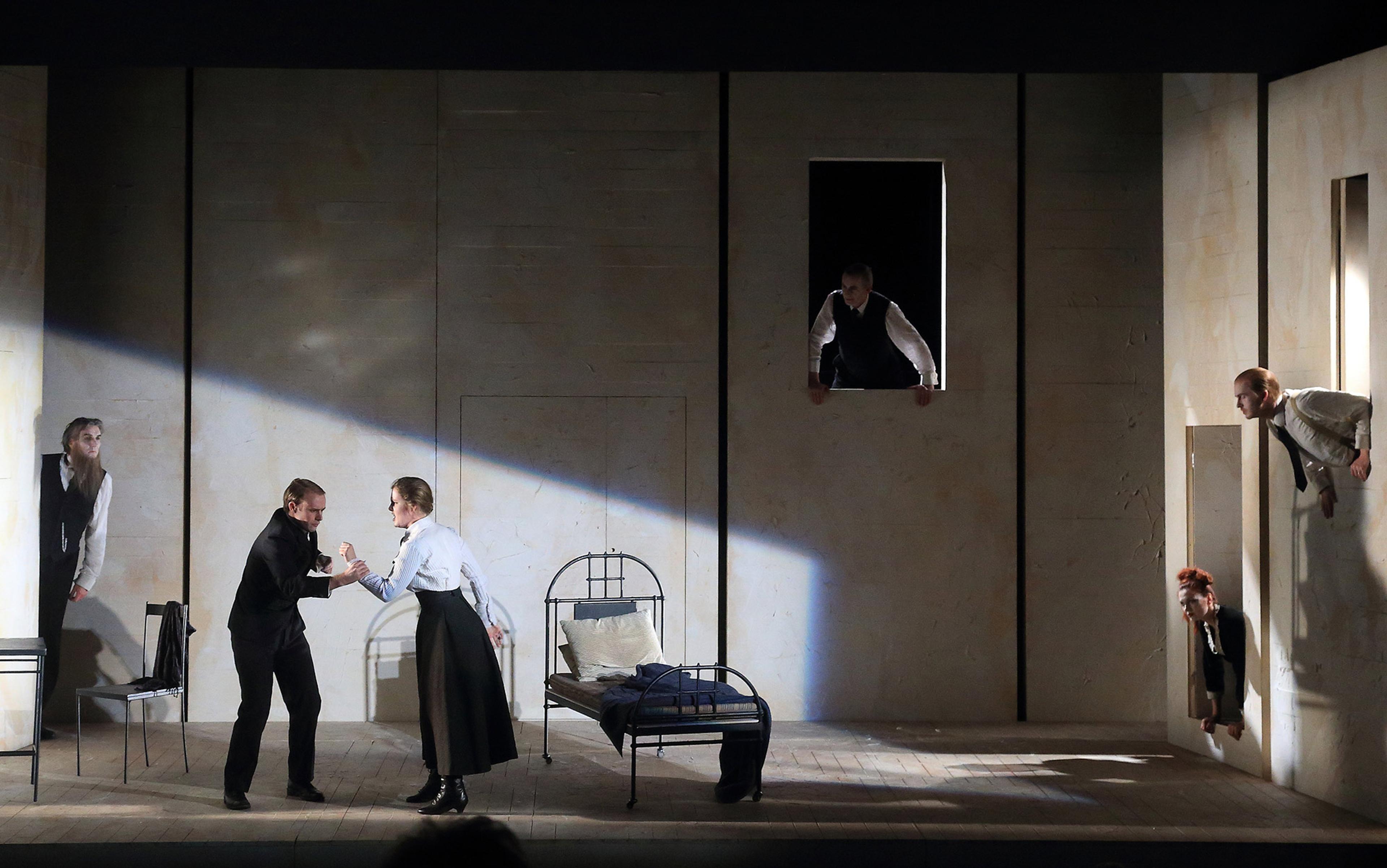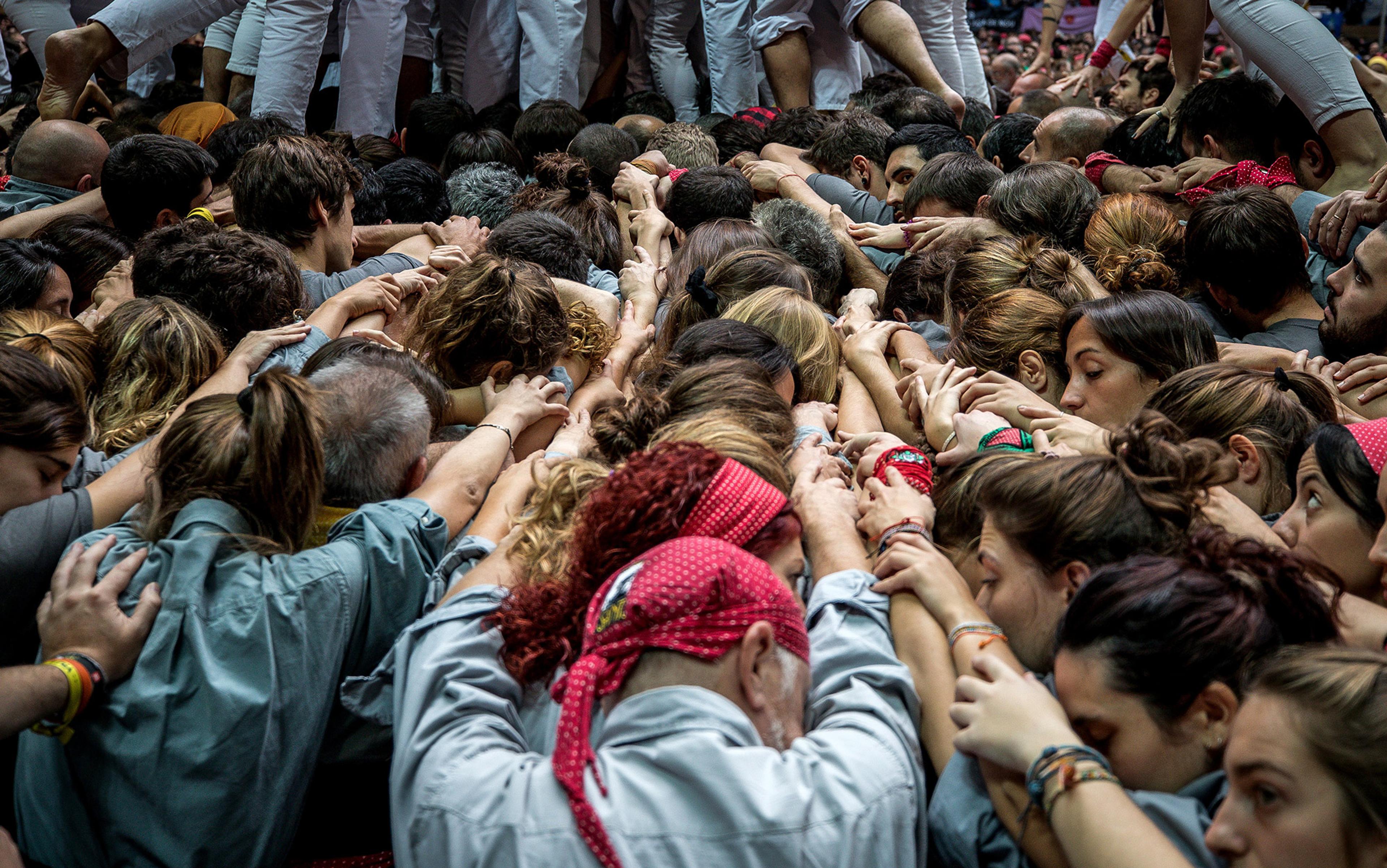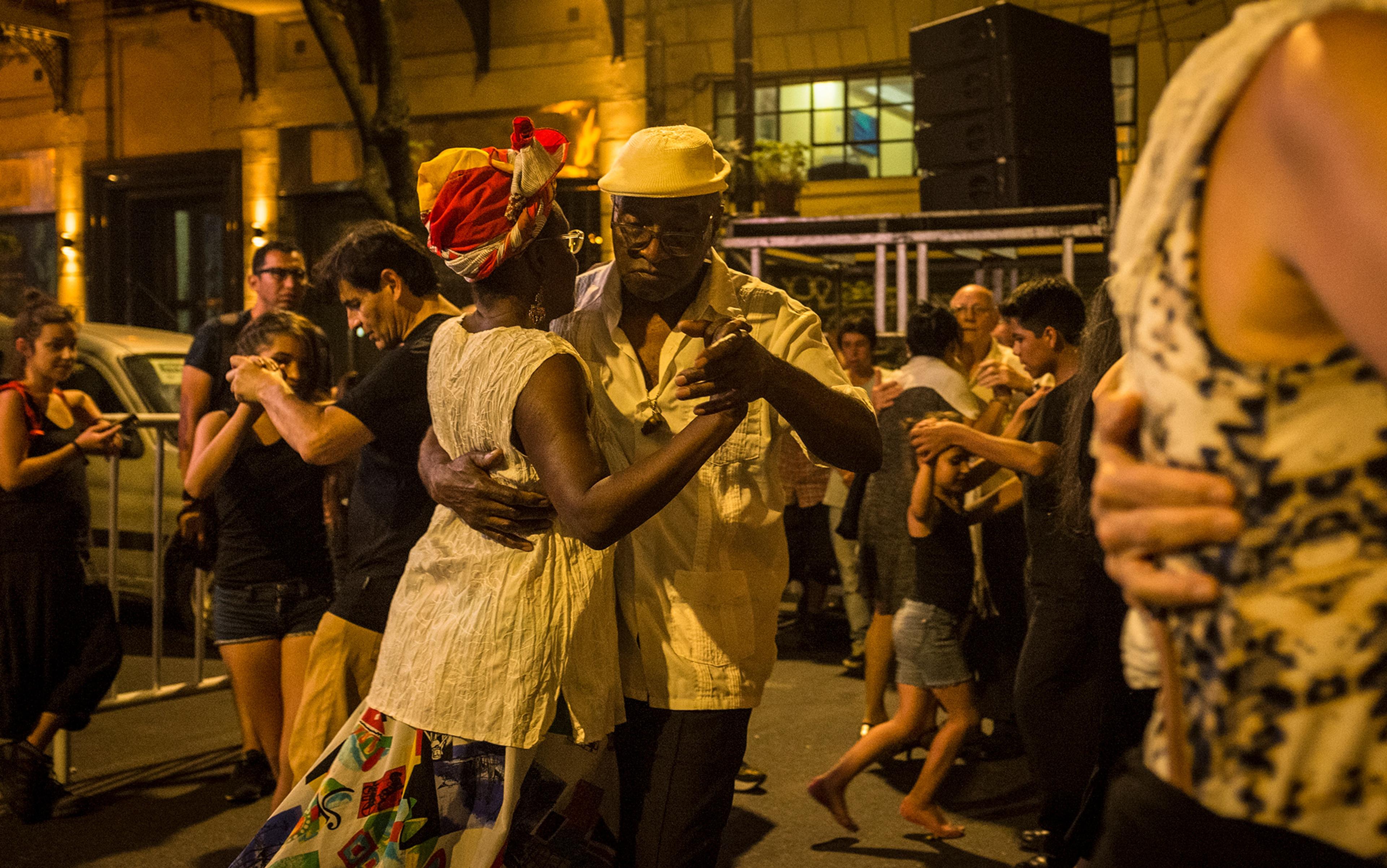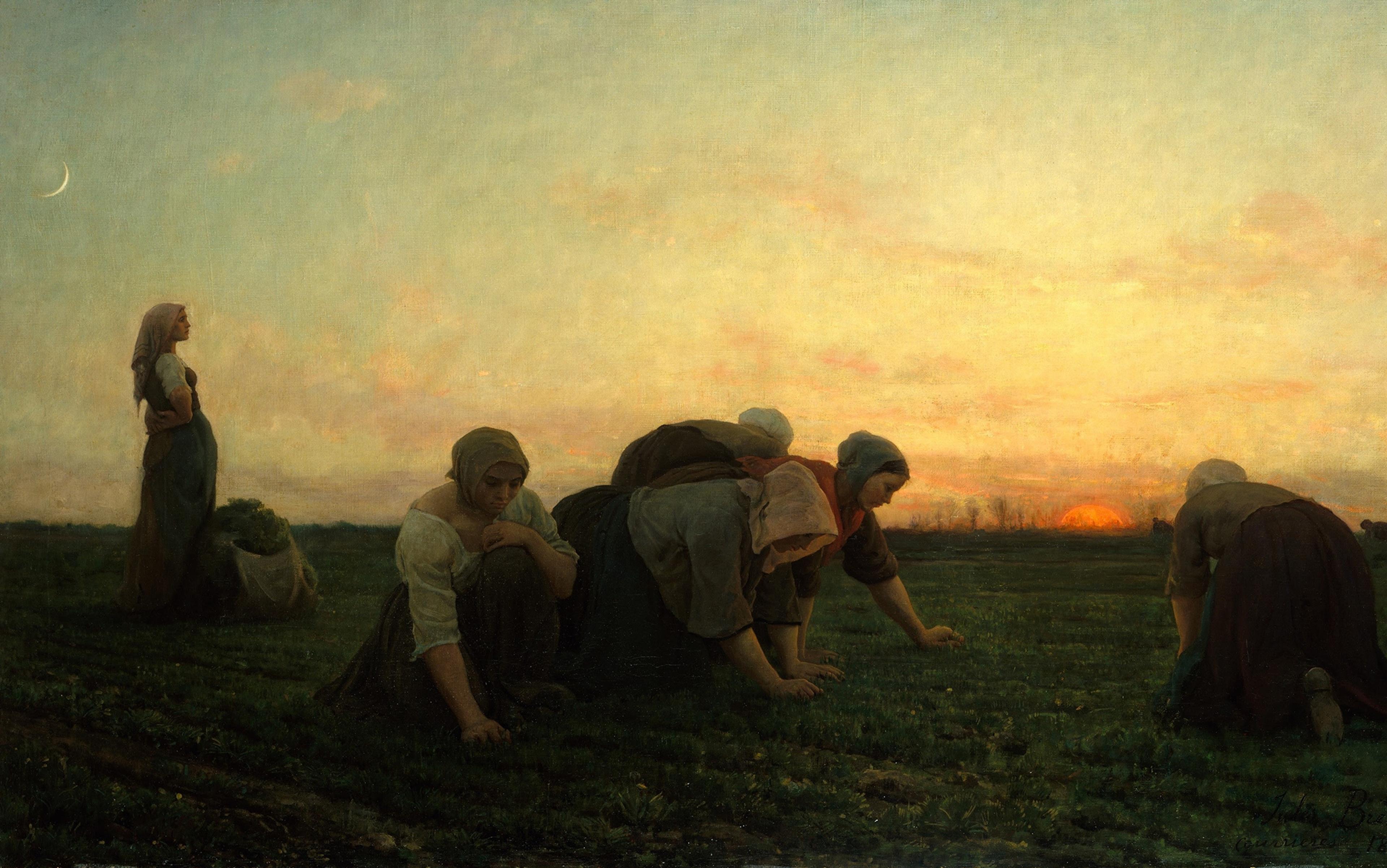Politics is inescapably emotional. Political ideas – such as freedom or equality – are often talked about as if they’re dry concepts, sandpapered down in a seminar room or a theoretical conversation. But political ideas involve feeling. The singer Nina Simone once said that freedom is ‘just a feeling’: a feeling of ‘no fear’. Justice is a state of affairs as well as a state of relief, elation, jubilation. And political advocacy, at its best, involves the passionate expression of strongly felt sentiments and experiences. But not all emotions should necessarily be welcome in politics. Hate and fear, for example, drive exclusionary behaviour. They often result in rash and unfair decision-making.
Perhaps love should be a part of politics. Might it not have a better role to play than hate and fear? In the 2016 presidential election in the United States, opponents of Donald Trump repeated ‘love trumps hate’ at protests and on placards. But Trump also used the language of love before and after his election: he said, for example, that the crowd at his inauguration was a ‘sea of love’. For some, this shows that love is an empty value in politics: an emotion so malleable as to be meaningless. I think they’re wrong, and believe that love has the potential to be a transformative force in politics.
In All About Love: New Visions (2000), the American feminist bell hooks says that men writing about love rarely draw on its practice, and even then tend to focus on the receipt of love, instead of the giving of love or the absence of love.
Bearing these points in mind as a male writer, I want to begin not with some abstract pronouncements about love, but with some reflections on my own personal feelings of love.
When I think of love, I call to mind the kind, caring glow of my mother. I remember the tone in her voice that seemed constant in my years growing up: a register of concern, somewhere between sympathy and pain. I think of her steady presence, in person and other ways, exemplified in a Skype call where she listened, unwavering, as my voice quivered with fear and stumbling self-doubt. ‘Love’ takes me to the feeling of being wrapped in the arms of a romantic partner whose commitment to me feels secure, unequivocal, total. It carries me to the moment when my twin brother held my hand, hour after hour, the day after serious surgery.
When I imagine moments where I’ve given love to others, I think of authentic expressions of closeness – to my parents, for example – that have dragged up a well of good feeling in me. I think of an attempt to be present for a close friend in times of struggle and need, through listening, acceptance, affirmation. I bring to mind spontaneous, unflinching outpourings of affection through words and touch. ‘Lovelessness’ makes me think of moments of absence. I have felt unloved when people from whom I have expected love have been distant, detached or disconnected. I’ve known what it is not to be loved when my romantic feelings of deep curiosity and admiration have been unrequited. I’ve felt a deprivation of love when I’ve faced abrupt, unexplained hostility from those with whom I should have had a loving relationship.
Out of these experiences of the practice of love, it is possible to outline what love might be. I don’t want to define the abstract noun ‘love’ here. Instead, what I am interested in, like hooks, is the verb: what it means to love. It is clear to me, from my experiences, that love involves a deep concern, that love is related to a steady state of support, that love is a force transmitted outwards from one person to another, that love is bounded by relationships in which there are expectations of presence and security.
Love, in sum, is a deep sense of warmth directed towards another. This approach, which I developed with the New Zealand writer Philip McKibbin, highlights love’s depth and directedness. It’s consistent with self-love, which involves a deep sense of warmth being directed towards our own selves. The word ‘warmth’ gets at the outpouring of goodwill that is associated with love. And warmth can take more specific forms, such as affection, attention, care, and concern. To love is a feeling, an emotion, but as Simone said of freedom, that’s ‘not all of it’. Love is between and beyond feeling and emotion. One way of expressing this is to say that love is a feature of the spirit: in other words, that loving is spiritual.
With this understanding of love in place, it is now useful to say what I mean by ‘politics’. I’ll start with politics in practice. In my experience, politics means many things: the chaotic clamouring of politicians in a debating chamber; the organising, arguing, laughing in some small room a night before a protest; the subtle power play between two people in a conversation, jostling verbally for a particular decision to be made. In essence, though, politics is the set of activities, often undertaken collectively, that relate to how power should be exercised and disciplined.
How, then, are love and politics related? Some indigenous traditions have for centuries explored how love, or something akin to it, can play a part in collective decision-making. In the New Zealand indigenous Māori culture, aroha (loosely translated as ‘love’) has long been a key value in dispute resolution. Religious traditions have prized the practice of love in everyday ethics. Activists have referred to love in placards and slogans – for example, in organising to oppose war, support marriage equality, or fight for human rights.
Socialist and anti-colonial thinkers have also developed the idea of love as an animating political force over the 19th and 20th centuries. Che Guevara wrote in a 1965 letter: ‘At the risk of seeming ridiculous, let me say that the true revolutionary is guided by great feelings of love. It is impossible to think of a genuine revolutionary lacking this quality.’ Michael Hardt, professor of literature at Duke University in North Carolina, has developed this reference, doing more than anyone else in contemporary theoretical circles to explore love’s implications for politics.
Over the 20th and into the 21st centuries, thinkers within the black radical tradition – especially hooks, Cornel West and James Baldwin – have also teased out love’s potential in politics. Liberal politicians and political theorists have toyed with love, too: former president Jimmy Carter called for government to be ‘filled with love’; the Czech writer and politician Václav Havel envisioned a government that would ‘radiate love’; the US philosopher Martha Nussbaum has written about ‘civic love’; and Hillary Clinton in her 2016 presidential campaign demanded more ‘love and kindness’ in the US.
The point is to make love a lodestar in politics, which takes us towards a politics of other people
Love should, in my view, be a virtue in, and an end-goal of, politics: this is what I mean by a ‘politics of love’. Put another way, the capacity to practise love – to direct a deep sense of warmth towards another – should be a character trait that is valued in politics. We should admire and encourage those who are motivated by love in their political practice (rather than being motivated by the ‘power and domination’ to which hooks refers), and who express love through political action. We should then also come to see the securing of love as a fundamental aim of what is done in politics.
This general politics of love – which aims for love as an end-goal in politics – leaves room for different visions of love. The project of strengthening a general politics of love involves building up the power of the rhetoric of love, in the same way that, arguably, the neoliberal economic project has involved building up the power of ideas of individualism, freedom and efficiency. But ‘love’ might be interpreted in different ways, just as freedom and equality can be interpreted in different ways; we saw this in Trump’s and Clinton’s very divergent usages of ‘love’ in the 2016 presidential election.
The main purpose of a general politics of love is to make love a lodestar – a starting point or standard – in political discussions. A general politics of love connects politics to everyday felt experiences. It reminds us that the personal is political, as feminism has long emphasised. It steers us away from individualism and self-interest, since, as Iris Murdoch put it in ‘The Sublime and the Good’ (1959), love ‘is the extremely difficult realisation that something other than oneself is real’. It takes us in the direction of an other-regarding politics: a politics of other people.
Despite these advantages, however, a general politics of love is not enough. It’s vague and it doesn’t realise love’s full political potential. To avoid these problems, a general politics of love must connect with radical politics. The logic of radical politics has at least three interlocking elements that are relevant here.
First, it pays attention to history and context. A radical politics of love, consistent with one meaning of the word ‘radical’ – grasping things at the roots (as the African-American activist Angela Davis has said) – tells a mixed economic/socio-cultural story about why contemporary societies have become the way they are. Our societies lack love because of the structure of the economy, which harnesses exploitation and greed while also taking away the time that people need for truly loving relationships. Societies lack love because of an unequal social structure that leaves people wounded, lonely and distant from each other in supposed communities. And they lack love because of the patriarchal, white-supremacist and related oppressive forces that create conditions of violence, insecurity and distrust.
The German psychologist Erich Fromm hinted at this contextual explanation more than 50 years ago, noting in The Art of Loving (1956) that the ‘social structure of Western civilisation and the spirit resulting from it’ are not ‘conducive to the development of love’. Fromm’s largely economic and social analysis needs to be refined, however, to acknowledge how race, gender, ableism and other structures pattern how love is distributed in contemporary societies.
Prisons embody a failure of love in institutional form, and make people see themselves in terms of the worst thing they’ve ever done
Second, a radical logic understands the preconditions that need to be realised to give meaningful effect to values. A radical politics of love does not just exhort people to offer warmth to all, but accepts that some steps need to be taken before love is possible. Survivors of sexual violence, or those affected by white supremacy, cannot be expected to turn spontaneously into ciphers of love. As hooks puts it so succinctly: ‘Without justice there can be no love.’ A radical politics of love is therefore bound to a commitment to redressing historical wrongs and other existing injustices. It requires us to ‘think constellationally’, in the words of the Nigerian-American novelist Teju Cole: we must think about how love is nested in a network of other values and relationships, which also need to be attended to for love to be realised.
Thirdly, being radical involves turning abstract commitments into positive action. A radical politics of love will hence have to heed Guevara’s call to ‘strive every day so that [the] love of living humanity is transformed into actual deeds’.
One particularly promising application of a radical politics of love is through what Davis describes in Are Prisons Obsolete? (2003) as ‘decarceration’ in criminal justice: a phasing-out of societies’ reliance on incarceration as a response to crime. Prisons embody a failure of love in institutional form: they deprive individuals of the tenderness of social contact, and require people to see themselves in terms of the worst thing they have ever done. Decarceration – which involves a collection of strategies ending incarceration for young people, abolishing short-term sentences, bolstering effective treatment and rehabilitation for individuals with serious problems – is an attempt to bring love to the fore.
Another action that could serve as a love-based lightning-rod for people to rally around is the introduction of a Universal Basic Income (UBI). This is a government payment to all individuals within a political community, usually monthly, which is not tied to work or other status. It has the potential to free people from unloving, exploitative work relationships. If a UBI is set at a sufficiently generous level, it might also give people the time and space to practice love directly in community with family, friends and neighbourhood. A UBI might be part of an economic platform that views human beings no longer as Homo economicus (self-interested individuals) but rather as interdependent, socially connected, loving members of a wider community.
These two examples both require state action to support the cause of love – but a radical politics of love can also have a bearing on activist politics itself. Too often activists, single-mindedly committed to the causes they are fighting for, burn out and face fatigue, self-doubt, mental health challenges and loneliness. A radical politics of love recentres the significance of solidarity and mutual care within activist movements, reminding individuals of the need for self-care and self-love.
One example of an activist group already trying to apply a radical politics of love is the Love-Driven Politics Collective in the US. Its co-founder David Kyuman Kim is also a professor of religious studies at Connecticut College, and draws on religious as well as moral, political and critical traditions in his efforts to build a loving public ethic. He told me he believes that ‘we have let [the] heartbeat of progressive politics diminish’. It’s ‘one of the reasons progressive politics is particularly uninspiring to folks’. Kim, who has co-taught a course on Radical Love with Cornel West, has led efforts to use love to address the ‘acidic’ culture within US academic institutions. And, with the Love-Driven Politics Collective, he’s now trying to bring love to bear on race and education in the US.
The sketch I’ve offered of a radical politics of love is distinct in important ways from past work on love and politics. It’s more developed than the throwaway references to love that have appeared in liberal political discourse recently from figures such as Clinton. Moreover, this radical politics of love involves love being directed towards ourselves and fellow participants in the political process, rather than being directed primarily towards the nation or the country, as Nussbaum has proposed. It’s about love of each other, rather than patriotism, and is a less exclusive and less dangerous approach than calls to love an abstraction, such as ‘nation’ or ‘state’.
A radical politics of love is not passive. It does not license pushover politics. Recall that justice must be done before love can be completely realised. And sometimes love itself requires anger, conflict and confrontational action. There is no inconsistency, then, between a radical politics of love and the calling out of racism, or direct action against sites of racism, capitalism and oppression. Nor does a radical politics of love have to distort the meaning of love.
In The Human Condition (1958), Hannah Arendt articulated the worry that ‘love … is killed, or rather extinguished, the moment it is displayed in public’. She thought that ‘love can only become false and perverted when it is used for political purposes’. Arendt is undoubtedly right that we should be wary of love’s perversion or its manipulation for politics. And the enterprise of creating a radical politics of love certainly involves a creative reimagining of the expectations we should have within political relationships. But love is always, everywhere, a project of planting ambitious expectations within a set of defined relationships. A radical politics of love merely requires an expansion of the types of relationships to which expectations of love should be attached.
The way to respond to negative emotions in politics is not to try to shut down emotions in politics altogether
The real barrier to the realisation of a radical politics of love, however, is not the necessity of anger or the nature of love. The real barrier is the combination of a cramped ideological discourse and a paralysing cynicism that pervades so much contemporary political discourse. To open up a space for love in our time, we need to broaden what is regarded as politically possible in the face of such cynicism.
We can see more clearly now than ever the presence of emotions in politics, particularly negative ones. The way to respond is not to try to shut down emotions in politics altogether – to try, in vain, to insist on calm, rational discourse. The way forward lies in working out which emotions have a rightful place in politics, being clear about what we mean (and do not mean) by those emotions, and translating those emotions into political practice. That’s maybe, just maybe, part of how love could trump hate.
